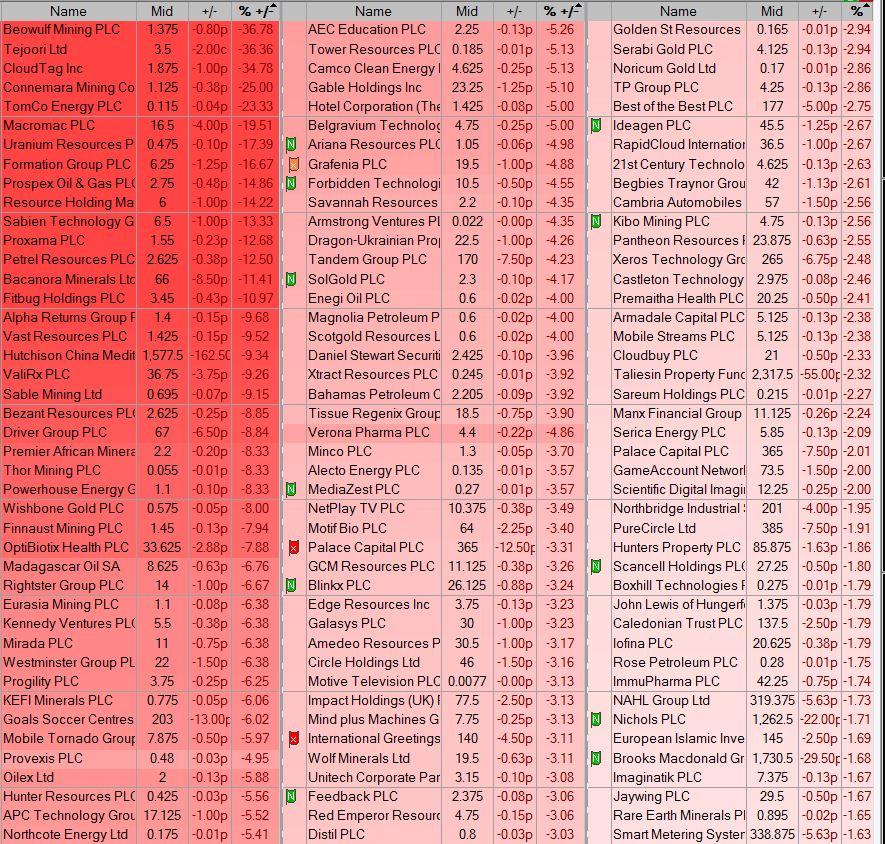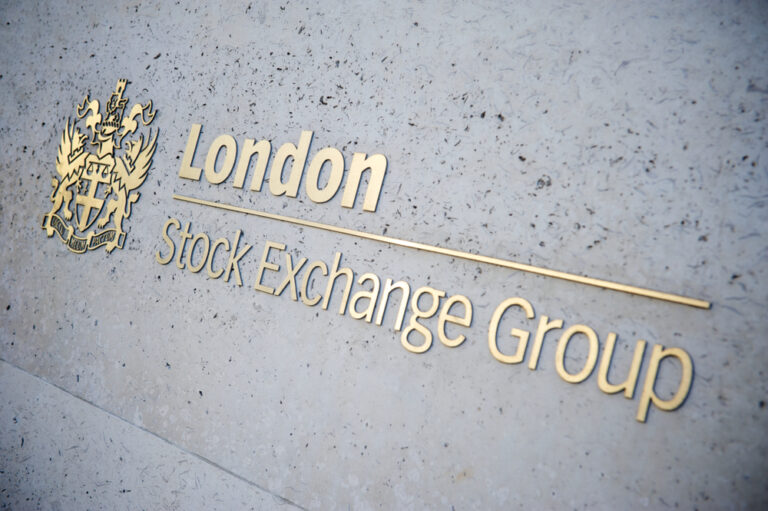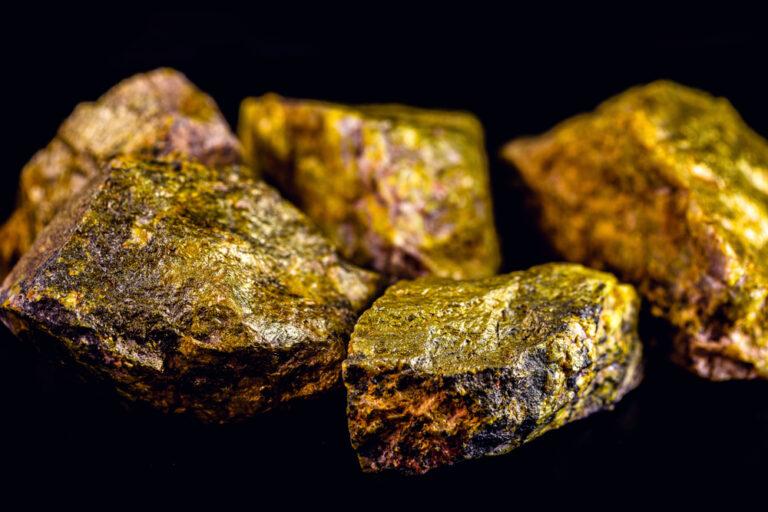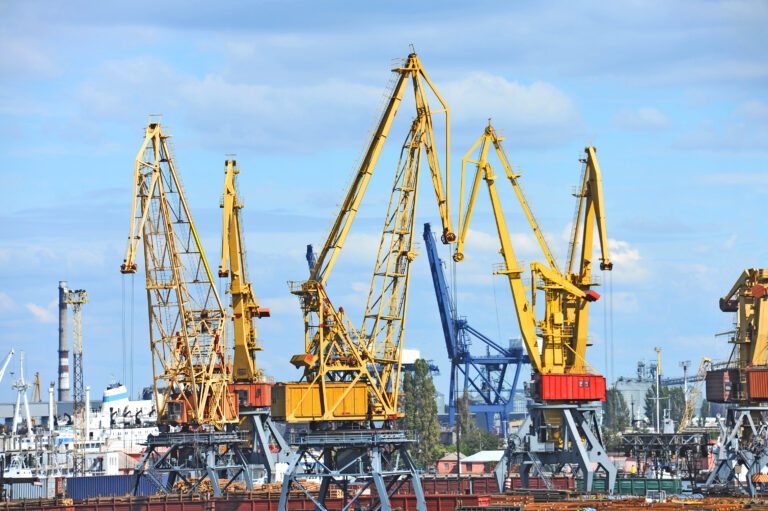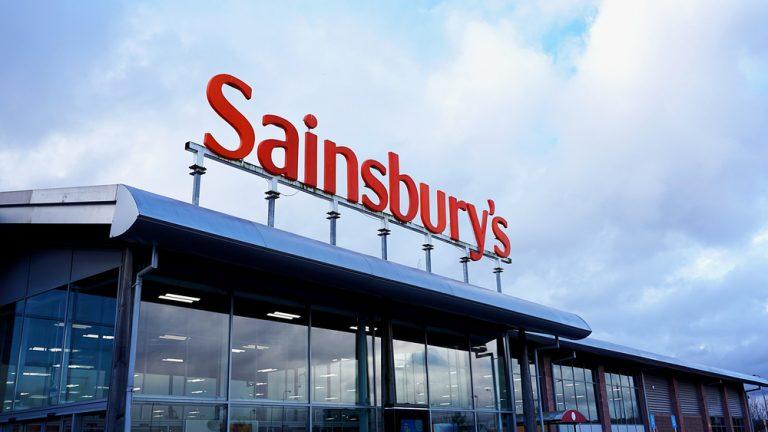Cloud computing and hosting services provider Iomart (LON: IOM) has been struggling in recent years as profit and the share price have declined. Iomart chair Richard Last has bought an initial 50,000 shares at 77.27p each, which is not much above the low for the year. Richard Last joined the board last June.
The share price is currently 76.9p, which is around the lowest it has been since 2010. It has halved since the end of 2023.
In December, non-executive director Annette Nabavi bought 5,500 shares at the beginning of 90.8p/share and these were also the first shares she acquired. Former bos...
Aquis weekly movers: Good Life Plus fundraising
Chris Akers has a 5.1% stake in Global Connectivity (LON: GCON), while Chris New increased his shareholding from 8.88% to 9.75%. Keith Harris raised his stake from 9.98% to nearly 11%. Premier Miton has increased its shareholding from 4.74% to 5.21%, while Placifor Investments raised its stake from 9.76% to 10.7%. Livia Meyer’s stake has reduced from 16.97% to 8.78%. Barry Hersh has still not paid the £375,000 subscription amount for 37.5 million shares. The share price jumped 37.9% to 1p.
Automotive electrification technology developer Equipmake (LON: EQIP) has received approaches from strategic investors and potential acquirers. Discussions continue. In the six months to November 2024, revenues improved 19% to £2.47m with EV components revenues increasing 80% to £254,000. There was a cash outflow from operating activities of £2.37m and capital spending of £686,000. Bus repowering services are being scaled down because of low volumes and this will save £2m/year. There was £2m in the bank at the end of November 2024. The contracted order book is worth £11m. The share price recovered 7.27% to 1.475p.
Good Life Plus (LON: GDLF) has launched more partnerships in the past three months, including with Reach and News UK. The family interests of Mark Blandford are subscribing £1m for an issue of convertible loan notes with up to £1m more on offer to other investors until the end of January. The cash will be invested in expanding customer acquisition and partnership, plus to enhance the premium prize draw operations. There are also plans for international expansion. The share price improved 2.27% to 2.25p.
FALLERS
Valereum (LON: VLRM) is participating in the Plan B Forum in El Salvador at the end of January. This is a major Bitcoin conference in Central America and will enabling networking and promote Valereum’s services. The share pricefell 14.5% to 23.5p.
Oscillate (LON: MUSH) has appointed Robin Birchall, a former director of Helium One Global, as chief executive and Steve Xerri becomes an executive director. Robin Birchall will receive options over 2% of the current issued share capital at a price equivalent to the share price at the time of a move to AIM or other Recognised Investment Exchange, plus he will receive a payment to buy 4.25 million shares. Igraine (KING) has reduced its shareholding in Oscillate from 5.05% to 3.64%. The Oscillate share price dipped 11.5% to 0.575p.
Marula Mining (LON: MARU) has applied for a new prospecting right next to the Blesburg Lithium and Tantalum Mine. The area extends over an area of 7,219 hectares. The approval should be received by the summer. Marula Mining will not be buying a 70% interest in the Korridor 21 prospecting right. The share price declined 10.8% to 4.125p.
Invinity Energy Systems (LON: IES) has changed its domicile from Jersey to England and Wales. The share price slid 7.04% to 16.5p.
AIM weekly movers: ImmuPharma trebles on positive research news
ImmuPharma (LON: IMM) says the preclinical research programme for autoimmune therapy P140 should pave the way for earlier, more accurate diagnostics, as well as better identification and improved monitoring of patients. Detailed data is not being published. The share price jumped 223% to 3.55p.
Floorcoverings supplier Victoria (LON: VCP) still expects second half trading to be stronger than the first half through a combination of management actions and slightly higher demand. Annualised cost savings should be £32m by the end of March 2025 with a total of more than £80m anticipated by 2027. Consensus 2024-25 operating profit remains at £31m, rising to £74m next year. Joe Scribbins has been appointed to the board to replace Blake Ressel as the representative of Koch Equity Development. Morgan Stanley has raised its stake from 13% to 14.2%, while Saqib Karim has increased his shareholding from 5.26% to 6.13%. The share price recovered 60.6% to 136.2p, which is the highest it has been since September.
Dowgate has raised its stake in washing machine technology developer Xeros Technology Group (LON: XSG) from 5.42% to 10.25%. That is the highest the price has been for nearly three months.
Mindflair (LON: MFAI) has an indirect interest in Infinite Reality via a 13% investment in the first Sure Valley Ventures fund and a 6.1% interest in Sure Ventures (LON: SURE), which owns 25.9% of the Sure Valley Ventures fund. In July 2024, Infinite Reality acquired investee company Landvault for $450m and Sure Valley Ventures retained a stake. Infinite Reality has raised $3bn at a valuation of $12.25bn. The previous valuation was $5.1bn. Having reached 1.375p when it opened on Friday, the share price ended the week 37.5% higher at 0.825p. There were 225 million shares traded on Thursday and Friday.
FALLERS
Downhole oil and gas technology developer Enteq Technologies (LON: NTQ) says testing of the SABER rotary tool results in the requirement for further engineering modifications. Delays to the start of active test drilling with an Australian customer mean that the timing of revenues is uncertain. The drilling could begin in April. There are also additional costs. This means that cash will not last as long as previously expected and Cavendish has pulled its forecasts. Enteq was expected to move into profit in 2026-27. The share price dived 76.7% to 0.77p.
Early in the week, legal services provider RBG Holdings (LON: RBGP) terminated the consultancy agreement of Ian Rosenblatt due to breaches of contract and offensive behaviour. He has restrictive covenants lasting until July 2028, but he was identified as owner of AWH Acquisition Corp, which is regulated as a firm of solicitors that changed its name to Rosenblatt Law. He is a director of this company along with former RBG Holdings director Tania MacLeod. RBG Holdings later said that it was shown that he was not involved with the new company until 19 December. Ian Rosenblatt had requisitioned a general meeting to remove Jon Divers as chief executive of RBG Holdings. The company is in talks with its lender and hopes to secure the funding it requires for the business. At the end of the week, RBG Holdings said it had entered into an exclusivity period with Ian Rosenblatt for the sale of the Rosenblatt brand business to Rosenblatt Law. Ian Rosenblatt will withdraw his winding up petition and the general meeting notice. This exclusivity lasts until 24 January. The share price declined 61.8% to 1.05p.
Data and marketing services provider Jaywing (LON: JWNG) has sent out the circular to gain shareholder approval for the cancellation of the AIM admission. This follows a requisition notice by 29.5% shareholder Michael Ashcroft and the company has decided that the departure from AIM is in the best interests of the shareholders. The general meeting is on the 5 February. The share price is 58.3% lower at 0.625p.
Global Petroleum (LON: GBP) has raised £1.5m via a placing at 0.225p, while a retail offer generated a further £51,000. This means that there is enough cash to meet work programme commitments for the Juno project in Western Australia, where it is seeking intrusion related gold systems similar to Havieron. The company is negotiating with a potential farm-out partner for PEL94 in Namibia. The share price slipped 35.7% to 0.2025p.
AIM movers: DBAY bids for Alliance Pharma and Enteq shares slide by nearly three-quarters due to delays
Alliance Pharma (LON: APH) is recommending a bid of 62.5p/share by Aegros Bidco, which is owned by DBAY Affiliates and the ERES IV Fund. That values the healthcare brands owner at £349.7m. There is an alternative of one rollover share in the bid vehicle for each Alliance Pharma share. DBAY has been building up a stake in Alliance Pharma for more than two years and currently owns 27.9%. DBAY believes that it will be easier to make operational changes without the distraction of being quoted. There will also be additional backing to make further acquisitions. The share price jumped 37.8% to 61.05p.
Oil and gas company Tower Resources (LON: TRP) has secured two farm-out agreements with Prime International for non-operated interests in Cameroon and Namibia. Tower Resources is expected to drill the NJOM-3 appraisal well in the second half, which could confirm the commerciality of the prospect. SP Angel has updated its share price target to 0.16p/share. The share price increased 24.3% to 0.046p.
AI-technology services provider Pri0r1ty Intelligence (LON: PR1) joined AIM at the end of 2024. The fundraising associated with the reversal of the business into the previously listed shell was done at 13.5p and there has been a decline since then. Buying interest has appeared and the share price recovered 11.1% to 10p.
A trading statement from animal feed additives supplier Anpario (LON: ANP) has sparked the fifth upgrade to 2024 forecasts. There was strong growth in Middle East and Africa. Shore has raised its pre-tax profit forecast to £5.5m, compared with £3.5m in 2023. Net cash is estimated to be £10.5m. The share price improved 8.84% to 400p.
FALLERS
Downhole oil and gas technology developer Enteq Technologies (LON: NTQ) says testing of the SABER rotary tool results in the requirement for further engineering modifications. Delays to the start of active test drilling with an Australian customer mean that the timing of revenues is uncertain. The drilling could begin in April. There are also additional costs. This means that cash will not last as long as previously expected and Cavendish has pulled its forecasts. Enteq was expected to move into profit in 2026-27. The share price dived 72.6% to 0.85p.
Data and marketing services provider Jaywing (LON: JWNG) has sent out the circular to gain shareholder approval for the cancellation of the AIM admission. This follows a requisition notice by 29.5% shareholder Michael Ashcroft and the company has decided that the departure from AIM is in the best interests of the shareholders. The general meeting is on the 5 February. The share price is one-quarter lower at 1.125p.
Timber company Woodbois (LON: WBI) has appointed Lucas Kanme as chief executive and the following day Nykredit Bank has terminated its loan facilities because discussions on repayment did not reach an amicable agreement. There is a total of $2.72m outstanding and it is repayable by 17 January. The bank has offered to discuss a settlement agreement. The share price dipped 17.1% to 0.145p.
TowerBrook Capital has decided against making an offer for Team Internet Group (LON: TIG). That still leaves Verdane Fund Manager AB as a potential bidder. It is proposing an offer of 125p/share. Previous approaches were rejected for being too low. The share price lost some of the gin earlier in the week and is down 11.5% to 104.2p.
Arecor Therapeutics (LON: AREC) is ceasing the operations of Tetris Pharma and it is returning the rights to Ogluo, a glucagon auto-injector pen for severe hypoglycaemia, to Xeris BioPhaarma. A partner of Tetris Pharma lost a key NHS Tender, which means revenues will be lower than expected in 2025. There will be a £3m write down. This enables Arecor Therapeutics to concentrate on core products, including ultra-rapid acting insulin candidate AT278, where partner discussions continue. The share price slipped 8.78% to 67.5p.
FTSE 100 slips after rocky week for UK bonds
The FTSE was heading into the weekend with a marginally negative tone on Friday as investors assessed the growing pressure on UK debt sparked by concerns about the country’s fiscal health.
A slower growth outlook and a stubborn inflation rate create a toxic mix for UK bonds, which saw benchmark yields hit multi-year highs this week.
The subsequent drop in the pound supported London’s leading index due to its weighting to companies that report on foreign currencies that have risen against sterling.
“Broadly speaking however, the LSE’s biggest names are shrugging off the increasingly bearish outlook for the UK economy as government borrowing costs as measured by 10-year gilt yields hover around the highest level seen since 2008,” said Derren Nathan, head of equity research, Hargreaves Lansdown.
“That’s prompted the Treasury to provide assurances it won’t break its own fiscal rules. Worries abound around the potential for growth, tax hikes and interest rates, but the international nature of the index means it’s not totally correlated to British economic conditions.”
The impact of a weaker pound on the index so far this week was less pronounced on Friday, and weakness in UK-centric stock, including banks, supermarkets and retailers, weighed on the index. Housebuilders were the exception, as Persimmon and Taylor both gained more than 1%.
Although the FTSE 100 is down slightly on Friday, it has managed to carve out minor gains since the turn of the year.
Sainsbury’s wrapped up a very soft week of festive trading updates for FTSE 100 retailers as shares fell 2% on the news like-for-like sales slowed again, despite gaining market shares over the key festive trading period. Investors will also be concerned about the outlook amid rising national insurance rates.
“Sainsbury’s has come on leaps and bounds with its grocery operations in recent years, fighting off the competition from Aldi and Lidl at the discount end and enticing people at the upper end from Waitrose,” said AJ Bell investment director Russ Mould.
“Its price points have struck a chord with shoppers, both those looking for a bargain on staples and those who want good quality items but don’t want to pay a pretty penny. Strategically, it is in a much better shape these days, but its situation is far from perfect.
“The story with Sainsbury’s is the same as it has been for the past year: Groceries are great, Argos less so. This would be fine if the supermarket chain wasn’t fussed with non-food interests, but Argos is a central part of its strategic growth plan so it has a problem on its hands.
“As it stands, the biggest part of its business is firing on all cylinders and the side attractions are the laggards, including clothing. Argos’ lacklustre performance has dragged for six consecutive quarters, which in anyone’s book is a big warning sign.”
Sainsbury’s soggy update dragged on Tesco shares, which gave up another 2% after falling yesterday.
After being upgraded to ‘overweight’ by Morgan Stanley, Reckitt Benckiser was the top riser.
Cash-strapped Vast Resources resorts to CEO loan
Cash-strapped Romania-focused copper miner Vast Resources has turned to its CEO to provide short-term funding through a €500,000 loan.
Vast Resources has lost around 90% of its market value since the beginning of 2024 as it grapples with a large debt pile and legal cases.
The unsecured loan provided by the CEO will be repayable once the company completes its funding process and achieves sufficient financial stability, should that ever be achieved. This interim financing solution comes as Vast Resources works to conclude various funding options previously disclosed to the market.
The company has outstanding debts of over €5m and was threatened with enforcement action last year by creditors.
Vast Resources has axed around half of its workforce at mines in Romania, but copper production in Q2 also fell by around half due to legal issues not directly related to the reduction in workforce.
A placing at the end of last year provided £750,000 in funding, which appears to be fully deployed given the need for today’s CEO loan. Vast said they will update the market in due course.
Enteq Technologies cash concerns sends shares down by 50%
Enteq Technologies, the AIM-listed energy services engineering company, has announced potential cash flow challenges as it continues development of its SABER drilling technology.
An update released on Friday indicates uncertainty around expected revenue timing and additional engineering costs.
Recent testing of the SABER Tool at Oklahoma’s Catoosa Test Facility in December 2024 demonstrated basic operational capabilities, successfully achieving directional drilling objectives. However, the tests also revealed the need for additional engineering modifications and operational procedure updates, adding to development costs and timeline extensions.
This delay impacts the company’s anticipated revenue timeline, putting pressure on its cash resources.
Management has indicated that the current cash runway is shorter than previously estimated, considering the ongoing development costs and uncertain revenue timing. In response, Enteq is actively focusing on cash preservation measures, though specific cost-saving initiatives have not yet been detailed.
Sainsbury’s shares fall despite market share gain during the festive period
Sainsbury’s shares followed Tesco and Marks & Spencer’s playbook on Friday as the supermarket’s shares fell after the release of festive sales figures.
Sainsbury’s has reported reasonable Christmas trading performance, with sales growing 3.8% during the crucial six-week festive period to January 4, 2025. The UK’s second-largest supermarket chain saw particular success in its grocery division, which matched the overall growth rate of 3.8%.
“We have won grocery market share for the fifth consecutive Christmas, with more customers choosing Sainsbury’s for their big shop. Driven by our leading combination of quality, value and service, we have achieved seven consecutive quarters of volume performance ahead of the market and further accelerated our two-year volume growth,” said Simon Roberts, Chief Executive of J Sainsbury plc.
The strong performance was underpinned by record customer satisfaction scores both online and in supermarkets during the Christmas period. The company’s premium Taste the Difference range performed particularly well, with sales growing by 16% in the key Christmas weeks, outpacing both the market and major competitors.
The success was further supported by the expansion of Nectar Prices to over 9,000 products and the introduction of Aldi Price Match in Convenience stores, an industry first that has driven strong customer response.
The disappointment for investors may be that like-for-like sales growth again fell, continuing the trend of quarterly declines in like-for-like sales growth.
General merchandise was a bright spot. The retailer’s general merchandise and clothing segment showed encouraging signs of recovery, posting a 3.4% increase over the Christmas period, despite being relatively flat for the full quarter. Argos, while facing challenges earlier in the quarter, delivered positive results with sales up 10.2% in the six weeks to January 4, or 1.1% when adjusted to include Black Friday trading in both comparative periods.
“Keep in mind that Sainsbury’s is more exposed to general merchandise than its peers through its ownership of Argos,” said Aarin Chiekrie, equity analyst, Hargreaves Lansdown.
“General merchandise is the most cyclical area of the supermarket economy to be in, so being overweight in this arena really slows you down when times get tough. Luckily, the festive season helped drive a need for toys and sales picked up slightly in the run-up to Christmas. The overall solid third-quarter performance means full-year profit targets remain on track, with the group expecting growth of around 7% to £1,035mn.”
The retailer has also upgraded its Financial Services profit forecast to around £30 million, up from its previous guidance of £15-25 million.
AIM movers: ImmuPharma autoimmune therapy success and ex-dividends
ImmuPharma (LON: IMM) says the preclinical research programme for autoimmune therapy P140 should pave the way for earlier, more accurate diagnostics, as well as better identification and improved monitoring of patients. Detailed data is not being published. The share price jumped 83.3% to 2.2p.
Data analytics technology provider Cirata (LON: CRTA) says that the fourth quarter bookings were the best since the second quarter of 2022. They were $3m of bookings in the fourth quarter which is always the strongest period, taking the total for the year to $7.1m, which is slightly lower than the year before. Fourth quarter cash overheads were reduced to $5m, while the quarterly cash burn was $3.2m. There was cash of $9.7m at the end of 2024. The annualised cash overhead is $20m and it should fall further to $17m. The share price recovered 19.4% to 25.5p.
Scancell (LON: SCLP) says that its Modi-1 Moditope vaccine in combination with checkpoint inhibitors shows an improved response rate in head and neck cancer in a phase 2a study. This means the study will continue to full recruitment to up to 21 patients. The addressable market for Modi-1 could be $3bn. There will be additional data later this year. The share price improved 5.33% to 10.375p.
Tercio Capital has increased its stake in Tortilla Mexican Grill (LON: MEX) from 3.25% to 4.25%. It went above 3% in December. The share price is 5.1% ahead at 51.5p.
Pawnbroker H & T (LON: HAT) says 2024 trading was in line with expectations. It is on course to improve pre-tax profit from £26.4m to £29m. The pledge book increased 26% to £127m. There were more loans over £5,000. There was strong demand for lower price jewellery, which boosted retail sales. National Insurance changes will increase costs by £2m/year. The year end is being changed to September this year. The share price rose 2.83% to 345.5p.
FALLERS
Impax Asset Management (LON: IPX) reports assets under management falling 8% to £34.1bn in the quarter to December 2024. The ending of the smaller mandate with St James’s Place was a factor and the larger mandate will hit the current quarter. There was also a negative market performance. The rate of outflows elsewhere is slowing. The share price dipped 4.64% to 231.25p.
Jeffries has changed its recommendation on video games company Team 17 (LON: TM17) from hold to buy and raised its share price target from 230p to 360p. The share price fell 2.17% to 225p.
Ex-dividends
Cohort (LON: CHRT) is paying an interim dividend of 5.25p/share and the share price increased 12.5p to 1142.5p.
Dotdigital (LON: DOTD) is paying a final dividend of 1.1p/share and the share price rose 0.25p to 84.25p.
Iomart (LON: IOM) is paying an interim dividend of 1.3p/share and the share price fell 1.4p to 78p.




